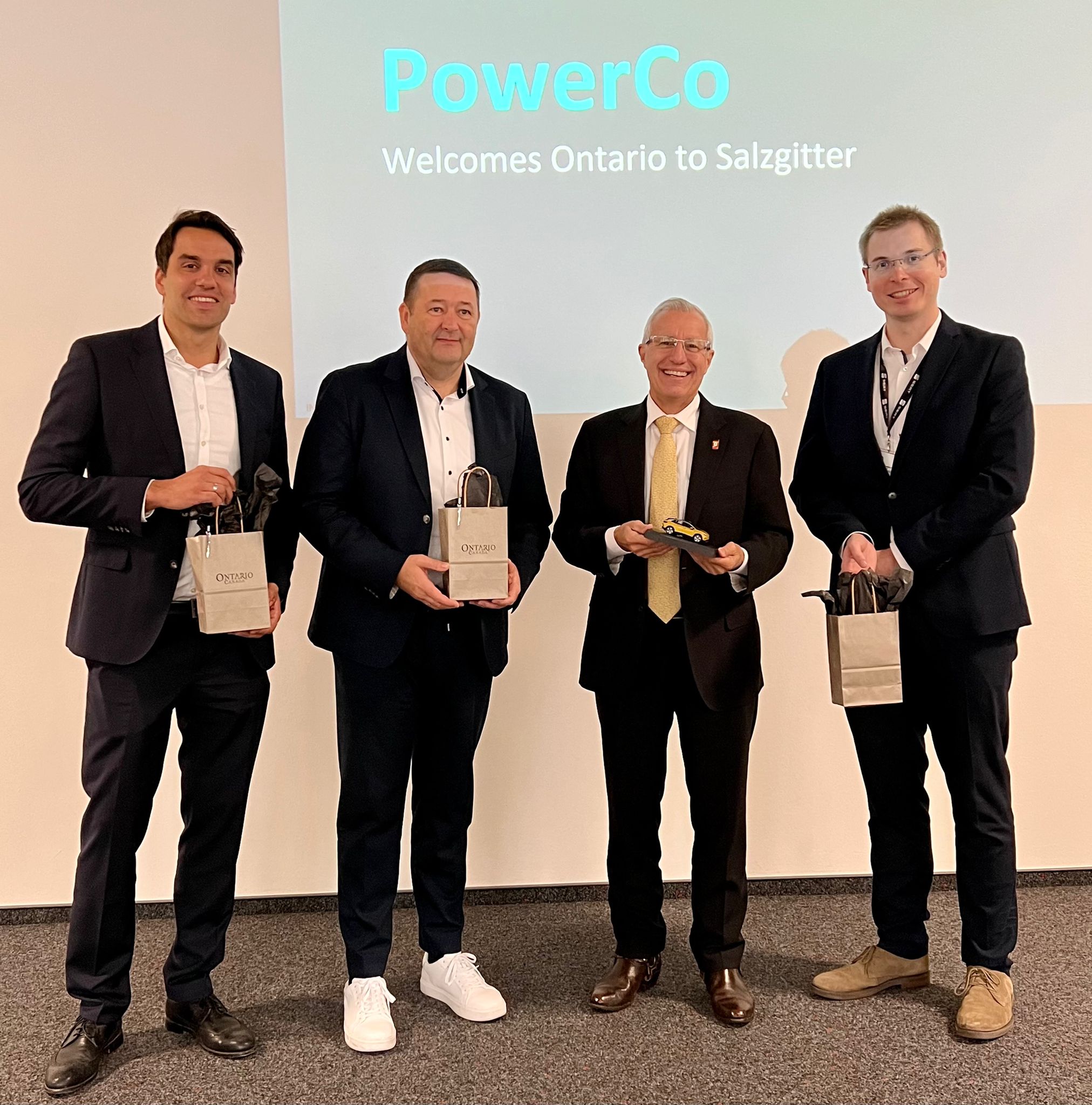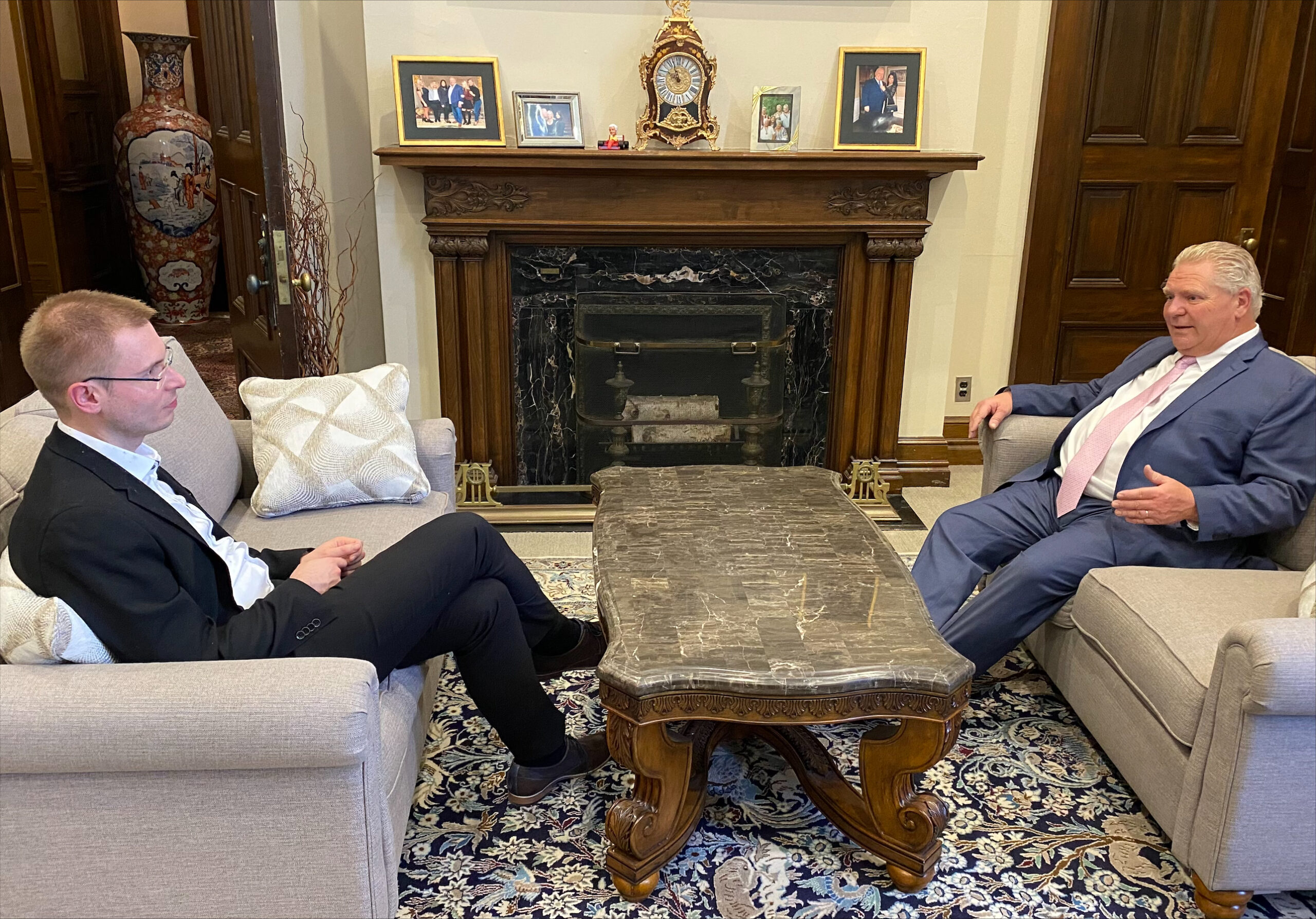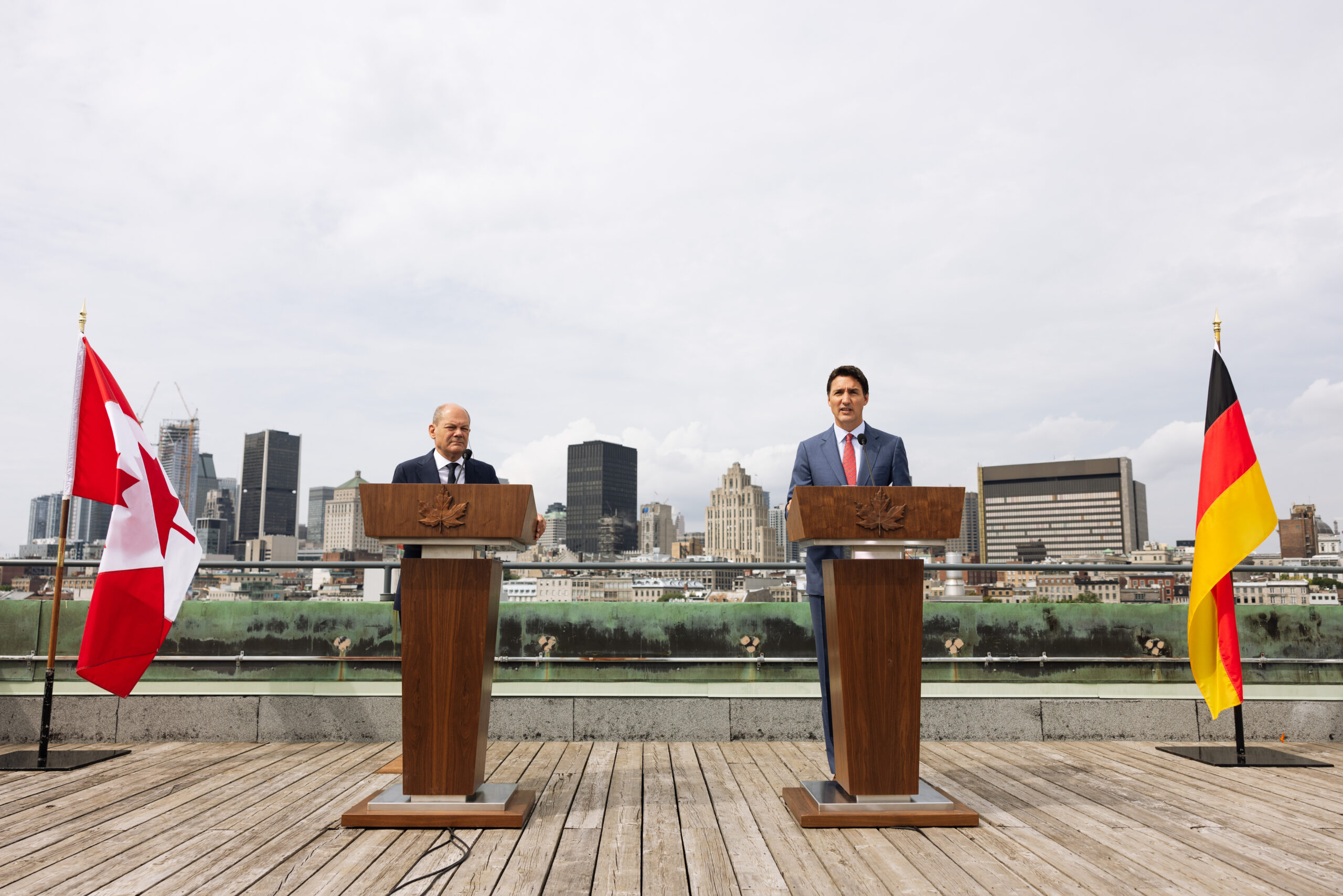
Celebrating 7 years of The Narwhal — and gearing up for the next 7
Between a fresh take on engagement and our new life on video, our team is...
Volkwagen, Europe’s largest automaker, will set up its first overseas manufacturing plant in St. Thomas, Ont., to build electric vehicle batteries.
Set to begin in 2027, the plant will be a “gigafactory,” or a facility that produces batteries for electric vehicles on a large scale, run by PowerCo, a subsidiary of Volkswagen, the company announced on Monday.
Arno Antlitz, the company’s chief financial officer, said a Canadian facility would give Volkswagen access to key minerals and clean energy, the “ideal conditions” needed “to take a strong position in the North American market.”
The news comes a few years after the auto manufacturer paid billions in fines and compensation for cheating on emissions tests and telling lies about the toxic pollution from a number of its diesel engine vehicles. In 2020, Volkswagen wound up paying a record fine of nearly $200 million in Canada over dozens of environmental infractions. It also offered more than $2 billion to reimburse customers who bought the vehicles.
Federal officials did not respond to questions from The Narwhal about whether there was any link between this case and Volkswagen’s new operations in Canada. In a statement, a spokesperson for Innovation, Science and Economic Development Canada said “Canada will continue to work with the company, following the March 13, 2023 announcement, to ensure that the announced investments will benefit Canada’s future as a cleaner and greener economy.”
In an interview with The Narwhal, Ontario Economic Development Minister Vic Fedeli noted Ontario could now offer the company “everything” on a “checklist” a Volkswagen representative gave him at a trade show in Germany last year: a skilled workforce, clean energy, an abundance of critical minerals, free trade agreements around the world and an already existing auto ecosystem.
Fedeli said details about this deal — including how much money Canada and Ontario have committed to the deal, how many jobs this plant will create and how many batteries will be produced — will be shared by the automaker in an on-site visit “soon, I hope” with Premier Doug Ford and federal officials in attendance. A date has not yet been set.

Volkwagen’s announcement is the first new investment from an automaker in Canada in 35 years, and makes Ontario home to six of the largest automakers in the world, “which is unprecedented for a country without its own domestic car makers,” Flavio Volpe, the president of the Automotive Parts Manufacturers’ Association, told The Narwhal.
Here’s everything you need to know.
Since April 2022, the Ontario government has held at least seven meetings with Volkswagen representatives. Weekly meetings began last October and the last four significant discussions were held over the last three months at Queen’s Park with Doug Ford. “There is no better [deal] closer on the planet,” Fedeli said of the Ontario premier.
The support for electric vehicles is a stark shift for the Ford government. Since coming into power in 2018, the government has scrapped several incentive programs that made it attractive and cheaper for Ontarians to buy electric vehicles and install charging equipment. “It only benefitted millionaires who could afford Teslas,” Premier Doug Ford said at the time.
Over the last two years, the Ontario government has gone full-speed ahead with one electric vehicle announcement after another. Fedeli told The Narwhal they were delivering on phase two of its Driving Prosperity plan, which puts an emphasis on manufacturing electric vehicles in Ontario, promising to “reposition vehicle and parts production for the car of the future, establish and support a battery supply chain ecosystem, innovate in every stage of development [and] invest in Ontario’s auto workers.”
Volpe credits the Ontario government for “a relentless drive to reduce the cost of doing business here” and streamlining business standards.

Federally, a relationship with Volkswagen began just as the United States made significant moves to attract automakers. Last August, U.S. President Joe Biden signed a new climate law, which stipulates that 50 per cent of the battery components of an electric vehicle must be made in North America to qualify for electric vehicle tax credits. That same month, during a visit to Canada by German Chancellor Olaf Scholz, Volkswagen signed an accord with the federal government to boost the supply chain for batteries with a focus on raw minerals such as lithium, nickel and cobalt — all crucial raw materials in the production of batteries for electric vehicles, and many of which are found on the Ring of Fire, which is all First Nations land.
As of January 2023, Volkswagen CEO Oliver Blume and four other officials were listed in Ontario’s lobbyist registry to discuss economic development and trade, energy, infrastructure, manufacturing and transportation, among others. The same officials have been listed in the federal lobbyist registry since last October.
Volpe said this deal was a result of great teamwork between the federal and provincial government. “This is the textbook case on how to drop partisan allegiance and jurisdictional tuf at the door and just win the prize,” he said.

St. Thomas is a small, rural Ontario municipality (population: 42,840) located halfway between Toronto and Detroit that was home to a Ford assembly plant over a decade ago. That plant’s closure meant the loss of thousands of jobs. The town is also about a 12-hour drive to Chattanooga, Tenn., home to a Volkswagen plant where electric vehicles are assembled.
The new Volkswagen plant is planned for a 1,500-acre agricultural site that spreads across St. Thomas and the neighbouring township of Central Elgin. Earlier in March, the Progressive Conservatives passed a bill consolidating that land into St. Thomas and reduced any regulatory requirements for industrial construction. Fedeli told The Narwhal this was necessary because it made it “one site in one jurisdiction, so there was just one municipal government to deal with.”
The decision is controversial because it means Central Elgin, which previously had authority over 75 per cent of the land, no longer gets any revenue from the construction of the Volkswagen plant. The decision to consolidate the lands and turn it into a site for the electric vehicle battery plant was also made with no public consultation.
But the economic activity Volkswagen will bring to the region may make up for that, according to advocates. “The fact that the 1,500-acre plot has been turned over to a likely 2,500-job site that resurrects a car town is probably a suitable sacrifice most would be willing to make,” Volpe said.

Volkswagen’s electric vehicle battery factory is the third major plant to be announced in the province.
Stellantis NV and LG Energy Solutions announced Canada’s first auto-battery factory in Windsor, Ont. — a close to $5-billion investment that will employ about 2,500 people, with full production expected by 2025. General Motors will invest nearly $1 billion to bring the production of the BrightDrop EV600 electric vehicle to its manufacturing plant in Oshawa. The government of Ontario and the federal government each committed $295 million toward the renovation of Ford’s Oakville assembly plant, which will exclusively build electric vehicles.
And a Belgian company, Umicore, which has a partnership agreement with Volkswagen, announced it will open a $1.5-billion electric vehicle battery plant in the Kingston area.
Manufacturers have also recently made similar announcements in neighbouring jurisdictions. In February, Ford Motor Company announced plans to create 2,500 jobs at a multibillion-dollar electric battery factory in Marshall, Mich. The American manufacturer had considered building this facility in either Canada or Mexico, but opted for the U.S., due to new tax breaks introduced by the Inflation Reduction Act, the New York Times reported.
In September 2015, the European automaker was rocked by revelations that several of its diesel models in the U.S. had been equipped with software designed to cheat on emissions tests. The vehicle’s nitrogen oxide emissions were 40 times higher than what U.S. standards permitted. The automaker has admitted that more than 11 million vehicles across the globe were implicated, despite widespread marketing its cars were low emissions.
The scandal, dubbed “dieselgate,” rocked many countries, including the U.K., Italy, France, South Korea, Germany and Canada and resulted in over US$30 billion in fines and damages. In December 2019, a Toronto court charged Volkswagen with a record-setting $196.5 million fine for importing nearly 128,000 vehicles into Canada that violated national emissions standards. The automaker eventually settled consumer claims with close to $2.39 billion in compensation and benefits, as well as a class action suit involving 105,000 people in Quebec and Ontario. Dozens of Volkswagen officials, including the former CEO, were charged and sentenced over the scandal.
There are few programs in place that would prevent this from happening again in Canada, despite wide calls for tighter emissions rules for automakers. Ontario’s emissions-testing program, Drive Clean, was eliminated when the Ford government came to power.
Since the scandal, Volkswagen has set up a sustainability council that meets several times a year to help lead decarbonization and electric mobility efforts.
Volkswagen’s electric vehicle battery plant in St. Thomas may revive an old automotive town but to do so will require a longlist of things including housing, transit, retraining programs for a burgeoning workforce and a lot of energy supply.
“The biggest challenge is the best one to have,” Volpe told The Narwhal. “We need thousands of people to work in this plant for suppliers to it. Likely in the region of 5,000 people, it will be a challenge to recruit. We do, however, have three to four years lead time.”
Updated on March 14, 2023 at 12:46 p.m. ET: this story was updated to include a statement from the federal government about its commitment to working with Volkswagen.
Get the inside scoop on The Narwhal’s environment and climate reporting by signing up for our free newsletter. On a warm September evening nearly 15...
Continue reading
Between a fresh take on engagement and our new life on video, our team is...

The public has a few days left to comment on Doug Ford’s omnibus development bill....

115 billion litres, 70 years to fix, $5.5 billion in lawsuits
